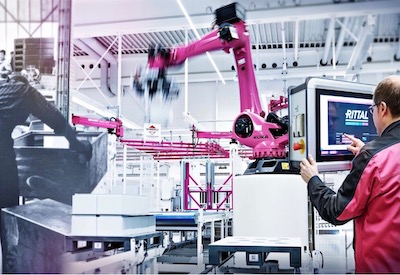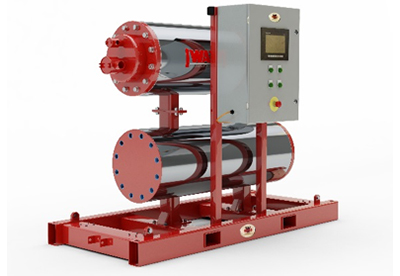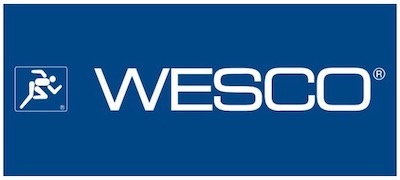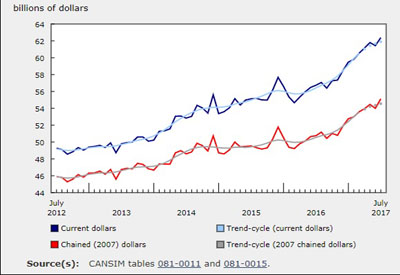Rittal Celebrates 60 Years Globally: From Steel Manufacturer to an International Global Company

Apr 8, 2021
It is April 1, 1961, when an international success story begins in a small weaving mill in central Hesse — the standardization of enclosures. Rudolf Loh founds the Rittal company and changes the industry with one idea. The standard enclosure is used in millions of product solutions in over 90% of all industries worldwide. Rittal is the innovation and world market leader for enclosure technology and IT infrastructure. 10,000 employees worldwide work on new innovations, industry solutions and business models. A small steel manufacturing company has become a global digital enterprise. What hasn’t changed: Rittal is a family business — responsibility, solidarity and social commitment have always been a top priority.
Herborn, 1 April 2021 — Rittershausen in Dietzhölztal — no one knew in 1961 that a small township in central Hesse would one day give its name to a global company. Rudolf Loh bought an old weaving mill and founded Rittal. The idea: standard enclosures in standard production, immediately available from stock, faster and better than the individually manufactured enclosures for control components of machines at that time. Long delivery times and quality defects were now a thing of the past. The boom of the post-war years had changed industrial manufacturing. Machines were interconnected and produced products in large series in the wake of growing consumption. So, Rudolf Loh’s idea came just at the right time.
A lot has happened since then. Innovations from the Herborn-based company are shaping industries around the world. Rittal solutions are used in control and switchgear engineering as well as in IT and the energy market, in shipbuilding, hospitals and soccer stadiums. 58 subsidiaries handle sales and service of Rittal products worldwide. In the Central Hesse region, Rittal is the largest employer and has recently invested over 250 million euros in the construction of a completely digitally integrated plant in Haiger.
From the system to the cloud
How did it come about? In the course of industrial automation, Rittal developed the enclosure into an entire enclosure system. The products were intended to solve several customer problems at once, for example with climate control and power distribution solutions. To this day, the company and corporate culture are characterized by the system idea — and the claim to drive change instead of just reacting to it. The system prevailed, not only in industry, but also in IT, where Rittal made a name for itself as a newcomer. To this day, energy efficiency, climate change or fail-safe power distribution are highly relevant topics where Rittal makes its customers successful with innovative solutions for industrial and IT infrastructures of all sizes.
In parallel, Rittal invested in a small company with two employees in the mid-1980s and built up Eplan — at a time when hardly anyone was thinking about software solutions for enclosure technology. Over the next years and decades, a wide range of software and services related to engineering was developed. Today, Rittal’s sister company is one of the world’s leading software providers for electrical engineering. Together, Eplan and Rittal now optimize and industrialize the entire value chain for customers in control and switchgear engineering. Currently, automation solutions such as machines for processing control cabinets are just as much a part of the program as sophisticated control cabinet system technology.
From the digital twin to edge computing
Helping to shape technological change in industry worldwide and taking responsibility for its home in Central Hesse — that was Rittal’s goal when it invested in the construction of the world’s most modern compact and small enclosure manufacturing facility to Industry 4.0 standards in Haiger five years ago. In 2020, the plant went into operation. Hundreds of machines and workstations were networked to digitally handle highly complex processes from ordering to production and logistics. In the course of this, the company created intelligent edge and cloud solutions together with their sister start-up German Edge Cloud, tailored to the needs of the industry, housed in their own data centre, tested in their own company. Rittal is thus once again on the path to standardization, also in the field of digitalization: German Edge Cloud is a founding member of GAIA-X, the European data infrastructure consortium, and a member of CATENA-X, the automotive network for secure data exchange.
People matter in the family business
Over decades, the company’s employees have shaped change — from the youngest apprentice to the most experienced specialist, from the development of innovations to the integration of refugees. Largest employer in the Central Hesse region and a family business by heart: Every year, the employees of the Friedhelm Loh Group — Rittal and its sister companies Eplan, Cideon, Stahlo, LKH, German Edge Cloud and Loh Services — jointly donate huge sums to social projects, already totalling well over 5 million euros. On the occasion of the company’s 50th anniversary, owner Prof. Friedhelm Loh established the Rittal Foundation, which has been supporting projects and institutions in the fields of social welfare, education and culture ever since.
“I am very proud of 60 years of success that we have written together with all our employees,” says Prof. Friedhelm Loh, owner and CEO of the Friedhelm Loh Group: “What makes us tick is curiosity, customer orientation, the courage to take risks and the joys of shared success. Because we love the future.”











